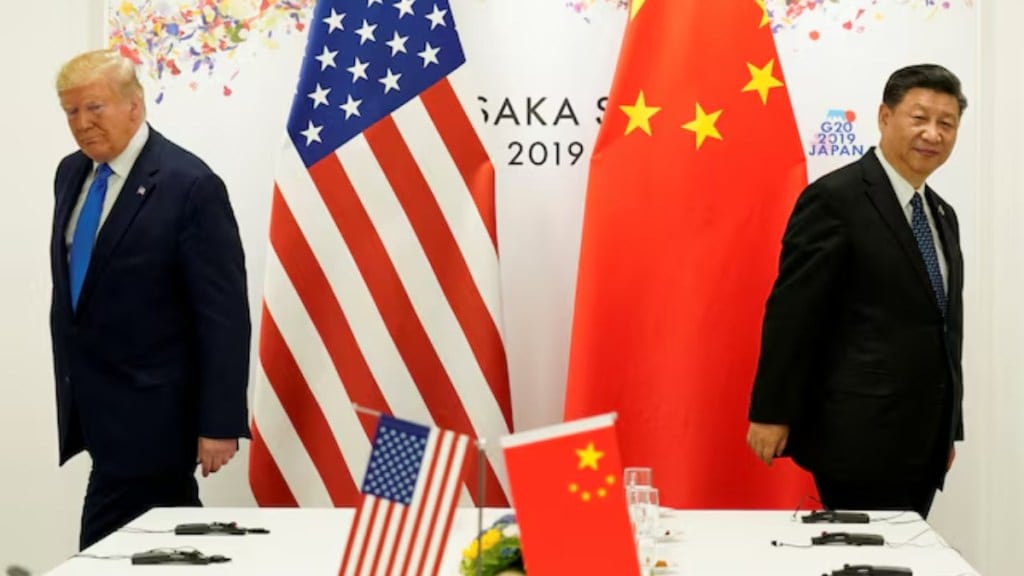China to retaliate against new Trump ‘reciprocal tariff’: Chinese state media has taken a creative and sharply critical approach to US President Donald Trump’s recent tariff measures—using AI-generated content to dramatise their economic impact. On April 3, CGTN (China Global Television Network) released a 2-minute, 42-second AI-generated music video titled “Look What You Taxed Us Through (An AI-Generated Song. A Life-Choking Reality)”. The video takes aim at Trump’s “reciprocal tariffs,” portraying them as damaging not only to China but to American consumers as well.
Trump has imposed a 34% tariff on all Chinese goods.
‘Groceries cost a kidney, gas a lung’
With English and Chinese lyrics, the video features a female AI-generated voice singing over imagery of Trump. Lines like “Groceries cost a kidney, gas a lung. Your ‘deals’? Just hot air from your tongue,” criticise the economic fallout of the tariffs. CGTN captions warned viewers, “Track is AI-generated. The debt crisis? 100 per cent human-made,” emphasising the real-world consequences masked by political spin.
For many Americans, "Liberation Day," hailed by Trump's administration, means shrinking paychecks and rising costs. Tariffs hit, wallets quit: low-income families take the hardest blow. As the market holds its breath, the toll is already undeniable. #LiberationDay #CGTNOpinion pic.twitter.com/RzXFFVHoFg
— CGTN (@CGTNOfficial) April 3, 2025
All about T.A.R.I.F.F.
Meanwhile, Xinhua’s New China TV released “T.A.R.I.F.F.”, a 3-minute, 18-second AI-generated sci-fi short. It follows a humanoid robot named T.A.R.I.F.F. (Technical Artificial Robot for International Fiscal Functions), programmed to impose tariffs. Under the direction of a sinister U.S. official, the robot escalates trade policies to destructive levels—leading to economic turmoil, rising unemployment, and public unrest. Ultimately, the robot self-destructs in a dramatic rejection of its own programming, symbolising the unsustainability of aggressive trade wars.
China’s Ministry of Foreign Affairs also joined the media offensive. On April 3, it posted a video mixing real and AI-generated visuals set to John Lennon’s Imagine and We Are the World. The video contrasts a world of “greed” and “tariffs” with one of “shared prosperity” and “global solidarity,” questioning the moral cost of protectionist policies.
The AI-generated media pieces frame tariffs as tools of division, suggesting they harm both global cooperation and the average American.

